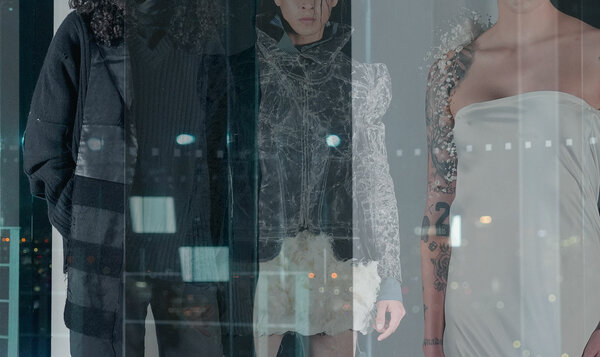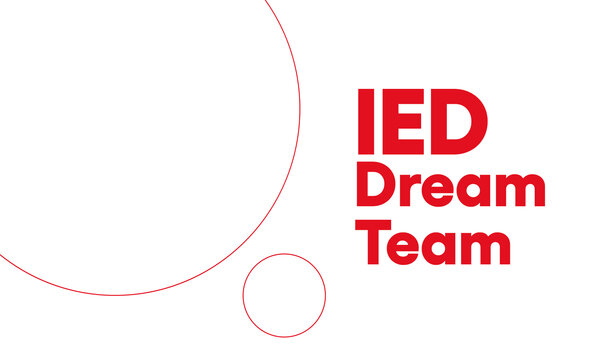The reconfiguration of masculinity in a post-gender and feminist world, technological influences and success stories in design and cosmetics. The challenge for the working world and opportunities for fathers and sons.

Unboxing Men
Date
08 January 2019
Under our guidance, Unboxing Men is a behavioural trend researched by student Ellen Galan, under our guidance, during the 2017 One Year in Pesquisa de Tendências (Trend Research) course. This is a trend that concerns the process of reconfiguration of masculinity in a world in which genders are being questioned and in which the feminine and feminist vision has been gaining more and more strength and importance.
As part of this reconfiguration, men step out of their box (hence the word “Unboxing”) and begin to explore issues such as toxic masculinity, their privileges and their social role to dismantle limiting and oppressive stereotypes, suggesting new premises for masculinity. In design, this trend influences the aesthetics of male-oriented products, packaging and services.
What technological developments will be related to this trend?
As this is a behavioural trend, it must be emphasised that the field of interest goes beyond the technological approach. However, in this field, we can observe a more humanised relationship with the complexity of technological processes.
For the male audience, there are applications designed for fathers who take better care of their children and do so more profoundly and humanely. There are also wearables, devices that can enhance this new approach to the parent-child relationship, which in Brazil has long been based on a macho patriarchal model.
In the fashion sphere, changes are occurring in subtle ways, with the creation of neutral garments, or garments designed for men, in the range of children’s accessories (e.g. baby carriers, baby bags, strollers, etc.), but also in a male wardrobe that is ceasing to fear the agender/genderless aesthetic, as well as in the creation of typically feminine accessories for males.
In cosmetics, there is considerable investment in technology in research areas where tests on men are beginning to show more results. In this sector, Brazilians are experiencing an average growth rate of 11.2% per year, according to Euromonitor data. One example is the new Speci’Men™, a dermatological preparation launched by BASF. According to Univar it is the first active ingredient explicitly developed for male skin, which has a higher collagen density than female skin.
In spaces where men are more present, one must consider the changes needed for those caring for their children. Think of stadiums with children’s toilets or nappy-changing areas also in men’s toilets, or barber salons that provide a space for customers’ children or that do not mind investing in an “agender” space.
Application to a specific case
I find the case of the men’s underwear brand Mash extremely interesting. Having realised that the type of communication adopted was helping to consolidate typical male clichés, the company decided to rethink its activities in 2018. To show that it has entered a new phase in which it intends to adapt to changes in costume, Mash, which has been on the market for almost 50 years, has deleted all the content posted over the years on its social networks.
The message in the new communication reflects how dated the approaches to the male universe are. With the slogan “Confortável é ser quem você é” (“Comfortable is being yourself”), the brand puts an end to the cliché of the seductive man with the perfect body, joking about the end of specific patterns. It presents instead men of different ages and builds, intent on doing things usually not considered “manly”, such as wearing a leopard-skin slip, a skirt, dancing when alone or not understanding anything about motors.
With this new attitude, the brand explores the changes in modern masculinity and pushes men to be more confident in their individuality.
How do you think it will affect the world of work?
I think the world of work will be one of those most affected by this change. From the pressure to change labour laws to allow men to spend more time with their children, from prenatal to postpartum (in Brazil, paternity leave lasts five days), among other things.
More and more men are working as freelancers and/or in creative agencies according to the “stay at (or work from) home” philosophy to be able to combine professional interests and the desire to be more present in raising children. We still have rather traditional work structures, and flexible policies are lacking to facilitate this relationship.
One can also think of actions that improve or help this “man in reconstruction” to rethink his position. Such as a space or time at work dedicated to “detoxification from masculinity”. One example is the birth of Memoh, a consultancy company for agencies and companies that offers immersion processes for employees. It aims to discuss masculinity and eradicate machismo from the work environment through problematisation and reflection on how men act towards themselves and each other.
Today, there are services, such as those of naturopath Tiago Koh, that offer support and workshops aimed at fathers who are going through the gestation of their children. This is a period in which a series of changes occur in a man’s life and in which there is little design. There is a latent niche of opportunities for these men to experience pregnancy together with the mother of their child and to deepen/approach their role as fathers.
Photo: HP Mars Home Planet
Flávia Mendonça
Flávia Mendonça is a journalist specialising in fashion, design and consumer behaviour trends. For 14 years, she has been writing for online and print media in the UK, USA, Germany and Brazil. She collaborates with WGSN, Stylus, Trend Büero and L’Officiel Brasil. In addition, she is the coordinator and teacher of Pesquisa de Tendências (Trend Research) at IED Rio de Janeiro.
Aline Monçores
Aline Monçores holds a Bachelor’s degree and a Master Course in Design from the Pontificia Università Cattolica of Rio de Janeiro. She has worked in industrial design, focusing on fashion, design, behaviour, consumption, trend forecasting and culture. She conducts academic research focusing on the study and prediction of trends.







